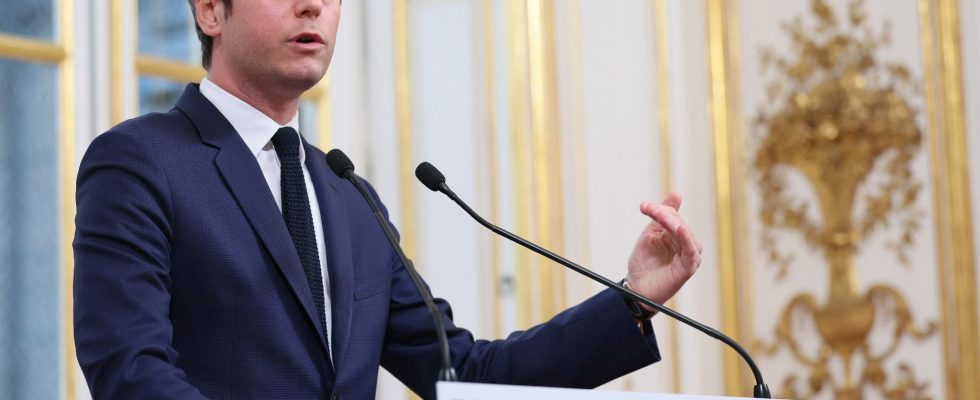In politics, it is not uncommon to contradict oneself throughout declarations and announcements. For several weeks, Emmanuel Macron has been repeating it over and over again: simplification will be the key. A portmanteau? Artisans, traders and farmers should normally be the first concerned by this “normative shock” desired by the Head of State which will be the subject of a law in the coming months. So when Gabriel Attal announced this Wednesday, February 21, his desire to vote on a new Egalim text – the fourth in the space of 6 years – it was the entire political communication strategy, launched by the President of the Republic since the beginning of the year and taken up by members of the government, who took a hit.
This barbaric acronym designates a set of laws supposed to guarantee “the balance of commercial relations in the agricultural sector and healthy and sustainable food”. Understand: guarantee better income for operators. An essential regulation which today suffers from unspeakable complexity and a lack of controls. As a result, it is not fully applied. The 20% organic in collective catering in 2022? In the absence of sanctions, the rate currently caps at 7%. Protecting the cost of agricultural raw materials in trade negotiations? The purchasing centers of certain distributors, located abroad, trample on French law.
Too complex a set of laws
Even MP Frédéric Descrozaille, author of the law that bears his name, also called “Egalim 3”, recognizes this: “We have put too high a level of precision. Paradoxically, the more details there are, the more complex the law is. and the less it will be applied.” Another elected official crosses the red line: “We should simply rewrite it.” It took an agricultural crisis, blocked roads and sprayed prefectures for our leaders to realize this. However, is adding standards to the administrative millefeuille really the solution?
Added to this is foreign competition, which is not subject to the same measures and which takes advantage of this to drive prices down as much as possible. In times of inflation, the consumer chooses and rejects more expensive French products. In the end, the agricultural sector pays the price and food sovereignty finds itself in danger. The Prime Minister clearly indicated that the government was in favor of a “European Egalim”. But between political will and implementation, there is a world of difference. Especially since in Brussels, negotiations to modify the regulations always prove to be long and often unsuccessful.
